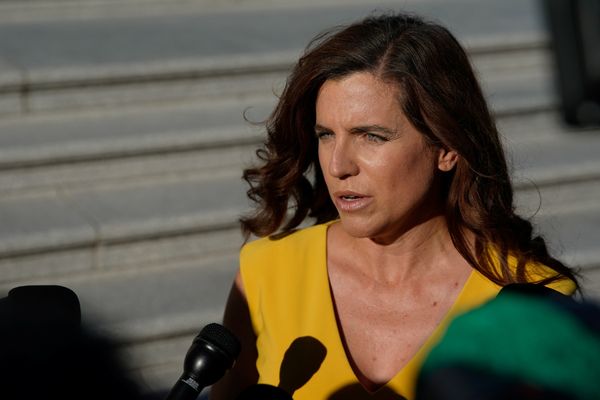Scott Morrison secretly appointed himself to five additional ministries while Australia’s prime minister, in what his successor has labelled an “unprecedented trashing of the Westminster system”.
The prime minister, Anthony Albanese, said on Tuesday he was waiting on legal advice over any possible ramifications of the secret appointments and was “open to reforms and suggestions” so the situation did not reoccur.
Morrison now faces calls to resign from parliament over the revelations, including from one of his former ministers. Karen Andrews, a former minister for home affairs, which is one of the departments to which Morrison appointed himself, said: “This is totally unacceptable, for a prime minister to behave in this manner undermines everything that a federal government constitutionally should stand for.”
Morrison remains a backbencher in the Liberal party, now led by his former defence minister Peter Dutton. Dutton defended Morrison’s actions and accused Albanese of attempting to make “political capital” over the situation. Dutton said he had been unaware of the appointments, but would wait on the legal advice before commenting any further.
In a statement on Tuesday, Morrison apologised to his former ministerial colleagues “for any offence” and described the arrangements “as a ‘break glass in case of emergency’ safeguard” during the coronavirus pandemic.
Between March 2020 and May 2021, Morrison appointed himself to the health, finance, industry, science, energy and resources, home affairs and treasury portfolios without the public’s knowledge, and in some cases, without alerting the existing minister.
There was no official announcement or record of Morrison’s swearing in for any of the five portfolios. His self-appointment gave him decision-making powers for those crucial areas if he decided he needed them. That made him the final arbiter, although few within his cabinet knew he held those powers.
The governor general, David Hurley, swore Morrison in as minister to the portfolios based on Morrison’s own advice.
Australian ministers are usually publicly sworn in by the governor general with cameras present, and their appointments announced to the parliament where it is officially recorded.
The appointments became public knowledge after two News Corp journalists, promoting their book on the Morrison government’s pandemic response, revealed the then-prime minister had sworn himself in as health minister, and as finance minister at the beginning of Australia’s first wave of Covid.
Just over a year later, Morrison used the same constitutional article to have himself sworn in as resources minister, overriding a decision made by the existing resources minister, who had been hitherto unaware he was sharing the portfolio with the prime minister.
In May 2021, Morrison added the last two portfolios to his list without the knowledge of either existing minister. The then treasurer, Josh Frydenberg, had been one of his closest confidants but said he had not known Morrison had also taken on treasury.
The revelations have thrown the Australian government, and public, into a spin, with no one able to explain why the appointments were necessary or why the Australian public had been kept in the dark.
“I cannot conceive of the mindset that has created this,” Albanese said.
“I cannot conceive of the way that the government has functioned in a way where they said that ‘I’m the prime minister of Australia and I’d also like to be in charge of health, finance, treasury, industry, science, home affairs, resources.’ I cannot conceive of how that occurs. And I cannot conceive of how a cabinet allows that to happen.”
Before the news of the five portfolios was made public, Morrison had said he did not recall appointing himself to more than three additional positions, but said the moves were necessary to “safeguard” the portfolios.
“Things were moving very quickly at the time,’’ he said. “None of us are perfect. There was no sense of bad faith in it.”







